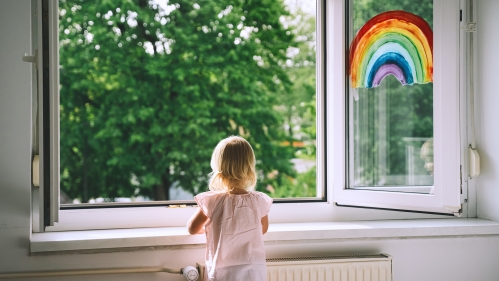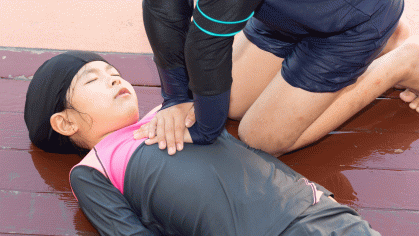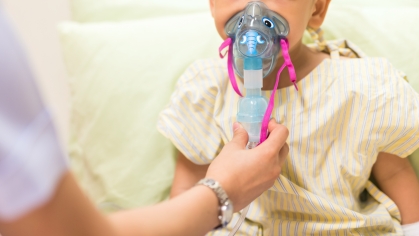A Rutgers New Jersey Medical School physician discusses how to keep children safe
Each year, about eight children ages 5 or younger die and 3,300 require emergency treatment after falling from a window, according to the Consumer Product Safety Commission. To bring attention to the risks, the National Safety Association has designated the first week of April as Window Safety Week.
Virteeka Sinha, an assistant professor in the Department of Emergency Medicine at Rutgers New Jersey Medical School and a pediatric emergency physician at University Hospital, has seen these injuries first-hand. She is studying hospital data on window falls to aid in prevention.
What do you most want people to know about window risk?
Window fall injuries can happen anywhere, anytime and not just from high-rise buildings. Childproofing with appropriate window guards is essential. It is important to remember that temporary screens, insect screens or similar devices do not provide adequate protection.
What have you learned from your analysis of the data?
There were about 30 children seen in our emergency department with injuries sustained from window falls in a four-year period. Most were boys around 4-and-a-half years old, an age when children are still inquisitive, running around and when parents start to relax supervision. Most injuries occurred in the head and neck region. Injuries included but were not limited to bleeding in the brain, liver injuries and fractures to the skull, arms and legs. Most of these falls occurred in May, when people are opening windows again after the winter.
What can caregivers do to keep children safe?
Install a window guard or an American Society for Testing and Materials F2090-compliant device that limits how far a window can open. Unlike other places like New York City, New Jersey does not mandate that landlords install window guards in buildings where children ages 10 or under live. However, they must install these safeguards in a residence if a tenant requests it. Once safeguards are installed, routinely check they are secure.
When young children are present, keep windows closed and locked. Never place a bed, chair or other objects onto which children can climb close to a window. If a child sits on the back of a couch against an open window, he can topple out. For a similar reason, do not let children jump on beds or furniture located close to windows.
Adult supervision is always recommended—especially when children are around in areas with open windows or when they are on a balcony.
It is also important to have a conversation about window safety with other adults involved in childcare—babysitter, grandparents, friends and family. These falls can happen at homes other than yours, so make sure that safety precautions are in place when children are visiting.




